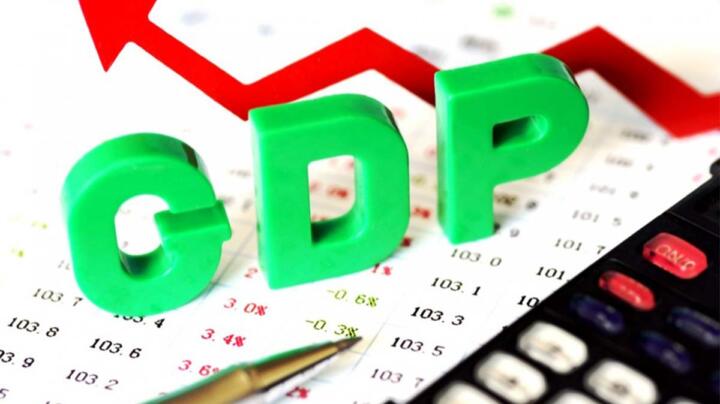Nigeria is set to embark on another round of Gross Domestic Product (GDP) rebasing, a move government officials say is critical for providing clearer fiscal data and restoring investor confidence in an economy grappling with weak growth, high inflation, and mounting debt. According to the National Bureau of Statistics (NBS), the exercise will update the country’s economic calculations by changing the base year from 2010 to 2019, in line with international best practices.

For many economic watchers, the upcoming rebase, expected to be completed by early 2025, is long overdue. The last time Nigeria rebased its GDP was in 2014, when the country surprised the world by overtaking South Africa to become Africa’s largest economy overnight. That rebase expanded the size of the economy by more than 80 percent, revealing previously underreported sectors like telecoms, entertainment, and information technology that had grown significantly but were not adequately captured in older estimates.
This time around, policymakers say the rebasing will paint an even clearer picture of how Nigeria’s economy has evolved over the past decade. New industries such as the fintech sector, online retail, creative industries, and renewable energy have emerged or expanded rapidly, yet their contributions remain underrepresented in national data. With the rebasing, these sectors will be properly measured and included in GDP figures, giving a more realistic view of what drives economic output and where new opportunities lie.
The Statistician-General of the Federation and head of the NBS, Prince Adeyemi Adeniran, recently explained that the exercise is not just an academic exercise but a practical tool for better governance. He noted that GDP rebasing helps policymakers design more accurate fiscal plans, track growth patterns, and compare Nigeria’s economy with those of other countries in a meaningful way. “Accurate data is at the heart of good economic planning,” he said. “When we know the real size and structure of our economy, we can design better budgets, attract investment, and target interventions where they are needed most.”
Economists agree that rebasing will likely show that Nigeria’s economy is larger than current estimates suggest, but it will also mean that some key ratios, like debt-to-GDP, could appear lower than they do now. This could be positive news for the country’s credit ratings and its appeal to foreign investors. By presenting a bigger economic base, Nigeria’s debt burden could look more manageable, potentially helping the government negotiate better terms with creditors and attract more foreign direct investment.
However, some experts warn that rebasing should not be seen as an automatic solution to deeper economic problems. They argue that while updated figures may paint a rosier picture on paper, they do not address underlying structural issues such as low productivity, weak infrastructure, poor power supply, and policy inconsistency that continue to limit growth. Dr. Bamidele Ogundele, a Lagos-based economist, cautioned that “a bigger GDP number is good for perception, but it does not magically fix the fact that millions of Nigerians still do not have jobs or reliable electricity to power their businesses.”
Nonetheless, investors and international partners say more up-to-date economic data is crucial for making sound decisions. Nigeria’s outdated economic indicators have long been a source of frustration for businesses trying to assess market potential and for development partners designing aid and investment programmes. For example, sectors like the creative economy — from Nollywood to music and fashion — have attracted global interest but their real impact remains difficult to quantify without robust, current data.
The rebasing will also affect other key economic statistics, such as the Consumer Price Index (CPI), which measures inflation. Adeniran confirmed that the CPI would also be reviewed to reflect more recent household consumption patterns and price movements. This is expected to improve how inflation is tracked, which in turn should help the Central Bank of Nigeria and fiscal authorities make better policy decisions to control rising living costs.
There is optimism that the exercise will shine a spotlight on Nigeria’s emerging digital economy. Recent reports have shown that tech startups in Nigeria raised over $1 billion in funding in the last few years, making the country a hub for African innovation. Yet, without proper inclusion in GDP calculations, this growth is not fully reflected in national income figures. By rebasing, these contributions can be officially counted, helping the government and investors alike understand the full scale of opportunities in the tech ecosystem.
The NBS has assured stakeholders that it is working closely with local and international experts to ensure the rebasing meets global standards. Funding and technical support are also coming from development partners such as the World Bank and the African Development Bank, which see accurate data as essential for tracking progress towards economic development goals.
As Nigeria eyes new investments in infrastructure, energy, and industrialisation, better data could also help guide government efforts to diversify away from oil dependence. Accurate sectoral data will help highlight which non-oil industries are performing well and where further reforms and incentives are needed to support sustainable growth.
While many Nigerians may not feel the impact of a GDP rebase in their pockets immediately, analysts say the long-term benefits are real if the new data leads to better policy choices and investor confidence. With clearer economic numbers, policymakers will be better positioned to tackle pressing issues like youth unemployment and poverty, and international partners will have stronger evidence to justify their investments.
For now, the focus remains on completing the rebase exercise thoroughly and transparently. If successful, Nigeria’s next GDP figures may once again surprise the world, but this time, stakeholders hope the new numbers will come with a firmer commitment to transform economic data into real development and improved living standards for millions.
Support InfoStride News' Credible Journalism: Only credible journalism can guarantee a fair, accountable and transparent society, including democracy and government. It involves a lot of efforts and money. We need your support. Click here to Donate
